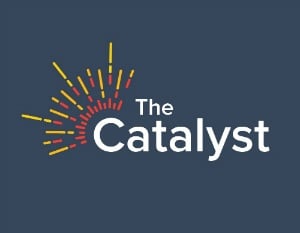 Conversations and healthy debate about issues facing our industry and the health care system are critical to addressing some of today’s challenges and opportunities. The Catalyst welcomes guest contributors, including patients, stakeholders, innovators and others, to share their perspectives and point of view.
Conversations and healthy debate about issues facing our industry and the health care system are critical to addressing some of today’s challenges and opportunities. The Catalyst welcomes guest contributors, including patients, stakeholders, innovators and others, to share their perspectives and point of view.
Today, we are pleased to welcome a guest post from Dr. Leah Zullig, an associate professor at the Duke School of Medicine in Population Health Sciences, who is dedicated developing, evaluating and implementing approaches to support patients with taking their medications.
While medicines play an important role in maintaining health, high out-of-pocket costs can create obstacles for patients to take their medications the way their doctor prescribed. It is well documented that high out-of-pocket costs can lead to medication abandonment and non-adherence, which can result in poorer health outcomes.
Certain groups, particularly racial minorities and those with lower incomes, may face additional challenges with adherence. Minority populations have disproportionately higher rates of chronic conditions and may also bear higher out-of-pocket costs more acutely, making it less likely for them to receive important medications to control chronic conditions such as diabetes and heart disease. Considering that about one-third of patients with uncontrolled diabetes aren’t taking medication, and almost 20% are on inadequate treatment regimens, it is critical that these patients receive proper treatment to also prevent other complications such as heart or kidney disease that can contribute to increased medical costs.
Recently, a public policy debate has resurfaced due to an executive order directing the Department of Health & Human Services to finalize a proposed rule that would favor drug discounts that insurers pass on directly to patients in Medicare Part D and Medicaid managed care at the point-of-sale. This potential policy change has received significant attention for its potential impact on out-of-pocket costs for prescription medicines as well as supply chain incentives
Experts think that this policy could result in meaningful changes for traditionally underserved populations, including minority communities. Reduced cost sharing could improve population health by increasing access to medicines. It could be particularly helpful for underserved populations, therefore reducing geographic and/or racial health disparities and improving equity in health care.
For more information, read this article published in Science Direct. Learn more about PhRMA’s commitment to racial equity and inclusion here.



 Conversations and healthy debate about issues facing our industry and the health care system are critical to addressing some of today’s challenges and opportunities. The Catalyst welcomes guest contributors, including patients, stakeholders, innovators and others, to share their perspectives and point of view.
Conversations and healthy debate about issues facing our industry and the health care system are critical to addressing some of today’s challenges and opportunities. The Catalyst welcomes guest contributors, including patients, stakeholders, innovators and others, to share their perspectives and point of view.